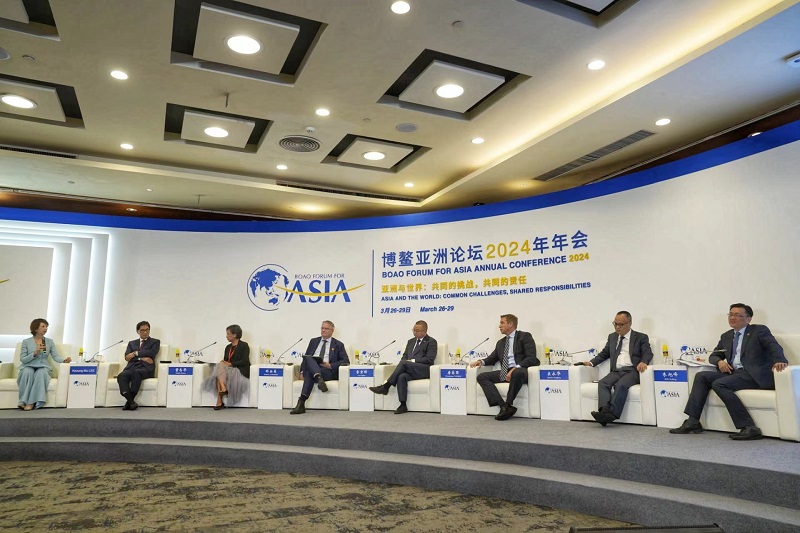
A panel discussion on global AI governance at the Boao Forum for Asia Annual Conference 2024 on March 28, 2024.
At a parallel session themed "Global AI Governance” at the Boao Forum for Asia Annual Conference 2024, China Today asked Christopher Thomas, a non-resident senior fellow of the Brookings Institution, about the challenges of China-U.S. cooperation on AI. Thomas said, “U.S. export controls have been ineffective in reaching their conclusions and counterproductive to many objectives” they pursue.
During the panel discussion, Thomas warned about the negative impact of geopolitics on the development of AI. He took the smartphone as an example, saying industries related to the smartphone grew because America and China collaborated with their best.
However, “now we’re in a world where America will do all of its own thing, and China will do all of its own thing, and we’re going to duplicate all of that investment. So, we’re going to waste our money on duplication rather than solving problems,” he said.
“I couldn’t agree more that we should have one global supply chain for AI technology. I would love all of the great semiconductor technology of the United States to flow into China. I would like every U.S. Internet company to have access to the Chinese consumer,” he said.
He advocated to remove barriers and restrictions on technology, and believed that countries don’t care where the technology comes from. “If it comes from China, great! If it comes from the U.S., that’s great. We all need to have open access to these markets. There’s just not enough.”
Talking about AI governance, Thomas acknowledged it’s difficult to manage AI regulation. National security and national barriers have to be de-emphasized. “We need to make true gestures regarding a single multilateral organization that can review these, which is going to require a lot of compromise from all parties,” he said.